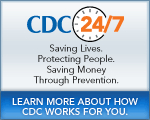Flu and Heart Disease & Stroke
People with Heart Disease* and Those Who Have Had a Stroke Are at Increased Risk of Complications from Influenza (the Flu)
People with heart disease and those who have had a stroke are at high risk for developing serious complications from the flu. Among adults hospitalized with the flu during the 2010-2011 influenza season, heart disease was the most commonly-occurring chronic condition; 37% of adults hospitalized with the flu during the 2010-2011 flu season had heart disease. Studies have shown that influenza is associated with an increase of heart attacks and stroke.
*Heart disease includes but is not limited to coronary artery disease [heart attack or myocardial infarction, acute coronary syndrome and angina (chest pain related to heart disease)]. It also includes the following common conditions:
- Heart failure
- Hypertensive heart disease
- Pulmonary heart disease
- Heart valve disorders
- Arrhythmias including atrial fibrillation
- Congenital heart defects
If you have heart disease or have had a stroke, you need to take steps to fight the flu.
- Get a flu shot.
- Vaccination is the first and most important step in protecting against the flu. Even if you don’t have a regular doctor or nurse, you can get a flu shot.
- Flu vaccines are offered in many locations including doctors’ offices, clinics, health departments, pharmacies, college health centers and increasingly by a number of employers and public schools.
- People with heart disease or who have had a stroke should get a flu shot (the vaccine given with a needle, usually in the arm) and not use the nasal spray vaccine (“FluMist®”).
- Take everyday preventive actions to stop the spread of flu:
- Cover your nose and mouth with a tissue when coughing or sneezing and throw the tissue away after using it;
- Wash your hands often with soap and water, especially after coughing or sneezing;
- Avoid touching your eyes, nose, and mouth (germs are spread that way); and
- Stay home when you are sick, except to get medical care. If you are sick with flu-like symptoms you should stay home for 24 hours after your fever is gone (without the use of fever-reducing medicine).
- If you do get sick with flu symptoms, call your doctor and take flu antiviral drugs if your doctor prescribes them.
- Treatment should begin as soon as possible because antiviral drugs work best when started early (within 48 hours after symptoms start).
- Antiviral drugs can make your illness milder and make you feel better faster. They may also prevent serious health problems that can result from the flu.
- Oseltamivir (Tamiflu®) is an antiviral drug that can be used to treat the flu. To get Tamiflu®, a doctor must write you a prescription. This medicine fights against the flu by keeping flu viruses from making more viruses in your body.
Take Other Important Steps to Stay Healthy
- Get a pneumococcal vaccine.
- Children, adults 65 years of age and older, and people who have heart disease should also get the pneumococcal vaccine to protect against pneumonia.
- Pneumonia is an example of a serious flu-related complication that can cause death. Pneumococcal vaccines may be given at the same time as flu vaccines.
- Maintain a two week supply of your regular medications during flu season.
- Do not stop taking your regular medications without first consulting your doctor, especially in the event that you get the flu or another respiratory infection.
- People with heart failure should be alert to changes in their breathing and should promptly report changes to their doctor.
More Information
- People at High Risk of Developing Flu-Related Complications
- Flu Symptoms & Severity
- Key Facts About Seasonal Flu Vaccine
- Preventing Flu: CDC Says “Take 3” Actions To Fight The Flu
- Treating Influenza (Flu) [848 KB, 2 pages]
- CDC Obesity and Overweight Web Site
- Pneumococcal Vaccine
- Heart Disease and Stroke Prevention
For Health Professionals
- Influenza and Cardiac Disease (QuantiaMD presentation)
- CDC Expert Commentary on Medscape: It’s Not Too Late to Vaccinate! (patients with cardiac disease)
- Print Resources Targeted to People with Chronic Health Conditions
- Matte Article: CDC Urges People with Chronic Health Conditions to Get a Flu Vaccine [209 KB, 2 pages]
Contact Us:
- Centers for Disease Control and Prevention
1600 Clifton Rd
Atlanta, GA 30333 - 800-CDC-INFO
(800-232-4636)
TTY: (888) 232-6348 - Contact CDC-INFO



